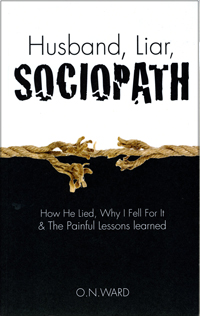
January is National Stalking Awareness Month. Vicki Kuper of Iowa was stalked for years by her former romantic partner, Mike Bonert, and has successfully held him accountable so far.
Vicki went to the authorities and got a No Contact order which wasn’t easy. Bonert proceeded to violate it 24 times. Vicki then was able to have Bonert prosecuted, which also wasn’t easy. He was convicted and sentenced to 11 years in prison, then an additional 10 years for his fifth stalking charge. He appealed his conviction, but still served four and a half years.
The Iowa Court of Appeals recently affirmed Bonert’s stalking conviction. Bonert is already out on parole, but he must wear a GPS ankle bracelet for the duration of his parole, until December 3, 2017.
“If you are being stalked, standing up for your right to live in peace is hard,” Vicki says. “Not everyone is supportive, and if the stalker is someone you had a romantic relationship with, it’s even harder. The attitude of many in law enforcement is that you will probably end up back together. Don’t give up fighting for your right to live in peace.”
According to the National Stalking Awareness Month website, stalking is a crime in all 50 states, the U.S. Territories and the District of Columbia, yet many victims and criminal justice professionals underestimate its seriousness and impact. In one of five cases, stalkers use weapons to harm or threaten victims, and stalking is one of the significant risk factors for femicide (homicide of women) in abusive relationships.
Victims suffer anxiety, social dysfunction, and severe depression at much higher rates than the general population, and many lose time from work or have to move as a result of their victimization.
Stalking is difficult to recognize, investigate, and prosecute. Unlike other crimes, stalking is not a single, easily identifiable crime but a series of acts, a course of conduct directed at a specific person that would cause that person fear.
Stalking may take many forms, such as assaults, threats, vandalism, burglary, or animal abuse, as well as unwanted cards, calls, gifts, or visits. One in four victims reports that the stalker uses technology, such as computers, global positioning system devices, or hidden cameras, to track the victim’s daily activities. Many stalkers follow their victims from one jurisdiction to another, making it difficult for authorities to investigate and prosecute their crimes.
After her experience, Vicki Kuper wanted to help other people who face situations like hers. She developed a webinar for Lovefraud CE called, Coping with Stalking: How to overcome fear and fight back strategies from a woman who’s done it.
If you’re being stalked, or know someone who is, Vicki’s information is invaluable. Sign up for her webinar today!
More information:
Webinars on escaping sociopaths, narcissists and relationship abuse






































 17-year-old girl allegedly lures teenagers to a robbery that turns into murder
17-year-old girl allegedly lures teenagers to a robbery that turns into murder